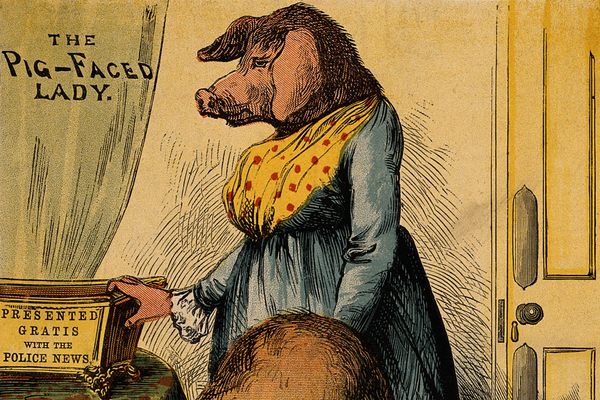For the First Time in 10 Years, Clarence Thomas Asked a Question in Court
The justice has been curiously silent in oral arguments.

Clarence Thomas in an official Supreme Court portrait. (Photo: U.S. government/Wikimedia)
For the first time in 10 years, Supreme Court Justice Clarence Thomas asked questions during an oral argument on Monday, breaking a record silence that fascinated and puzzled observers.
Thomas asked the questions a little over two weeks after the death of his friend Antonin Scalia, a fellow Supreme Court Justice and conservative legal icon.
The case in question revolved around possible new limits on a federal law that restricts those convicted of domestic violence from owning guns. Thomas, speaking to Ilana Eisenstein, a U.S. government lawyer, asked if a person’s constitutional rights could be suspended for violating other laws.
Thomas peppered Eisenstein with several questions about Second Amendment gun rights, a topic no other justice had asked about. He noted that the law allows someone convicted of a misdemeanor assault charge to get a lifetime ban on possessing a gun “which at least as of now results in suspension of a constitutional right.”
“The suspension is not directly related to the use of a weapon?” Thomas asked.
Eisenstein said he was correct, but that Congress passed the law to prevent people accused of domestic violence from later using weapons against a family member. She noted that violating other laws can in some cases limit a person’s free speech rights. Thomas then asked how long the suspension of the right to own a firearm lasts.
Eisenstein said it was indefinite.
While it was the first time in a decade Thomas has asked questions, it has not been that long since he has spoken during an oral argument. In 2013, Thomas cracked a joke from the bench, slyly mocking a lawyer’s credentials.
The lawyer was a graduate of Harvard. During a discussion of the lawyer’s qualifications, Thomas, a Yale graduate, said the following at the lawyer’s expense, according to an official transcript: “Well, there—see, he did not provide good counsel,” Justice Thomas said. “(Laughter.)”
Thomas has previously said that he relies mostly on written briefs to decide cases, and doesn’t see much value in questioning lawyers from the bench.
“I think we should listen to lawyers who are arguing their cases, and I think we should allow the advocates to advocate,” he said at Harvard Law School in 2013.
The New York Times reported earlier this month that it’s been 45 years since a single Supreme Court Justice “went even a single term without asking a question.”







Follow us on Twitter to get the latest on the world's hidden wonders.
Like us on Facebook to get the latest on the world's hidden wonders.
Follow us on Twitter Like us on Facebook